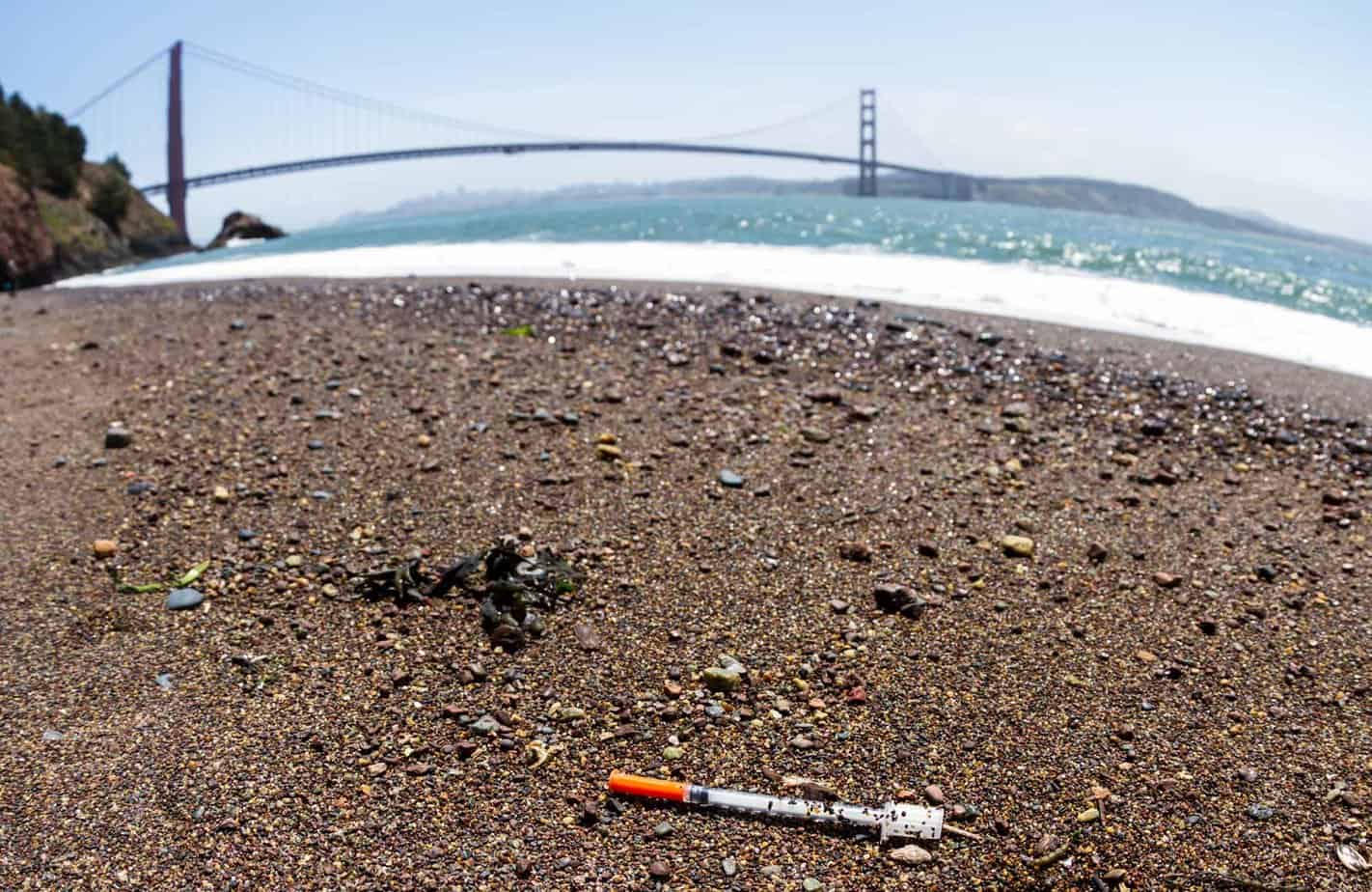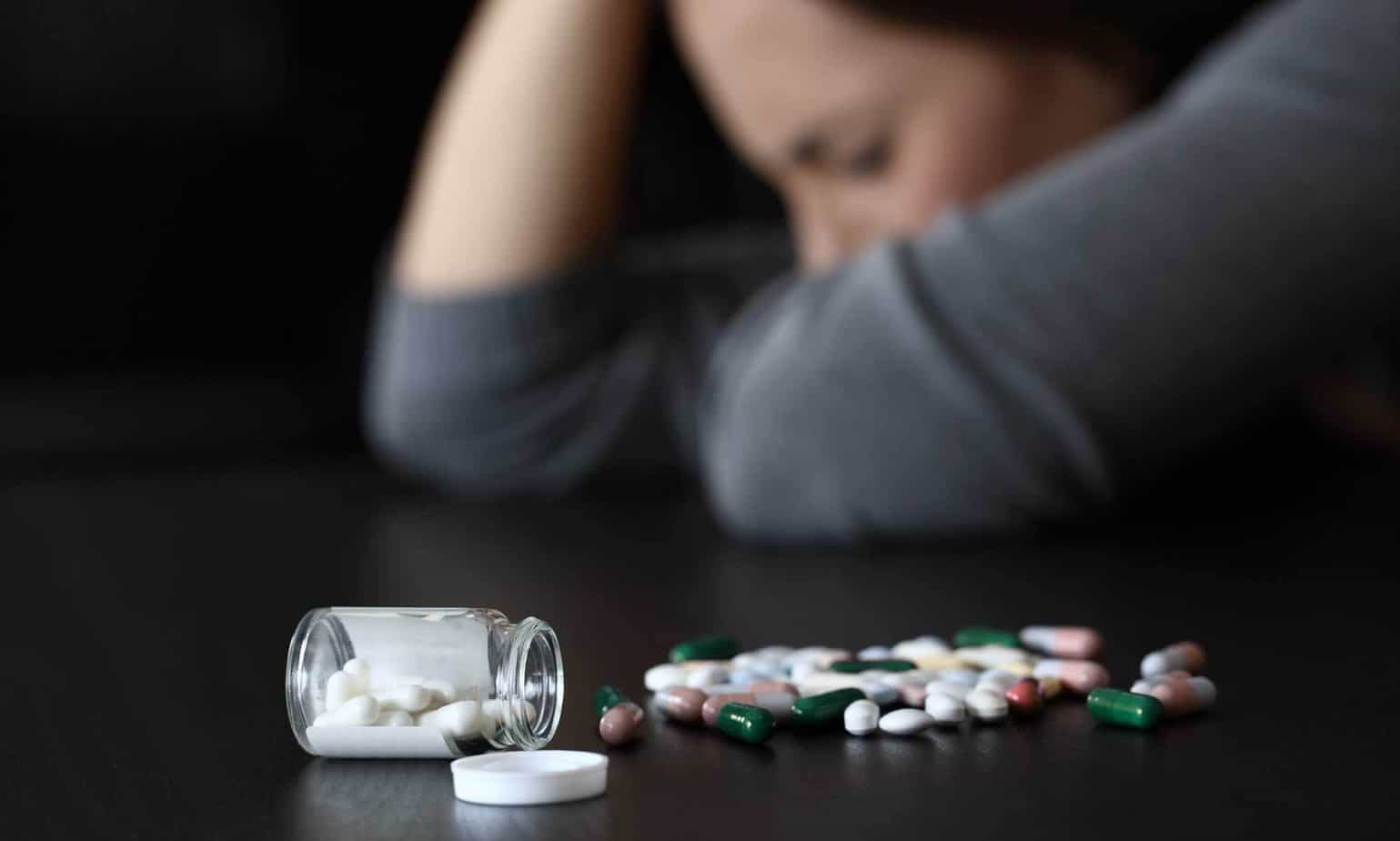Needles, pipes, and drug residue ⎼ they are not just being found in dark alleys or abandoned buildings, they are spreading to beaches, public parks, and local coffee shops. Over the last few years, officials have seen a significant increase in drug paraphernalia being disposed of in communal places, exposing the public to powerful drugs and placing them at risk of contracting diseases such as hepatitis and HIV. Officials, businesses, and community members are now searching for ways to protect themselves and others.
Children: The Most Vulnerable Victims of the Opioid Crisis
City officials across the country have been diligently working to collect disposed needles and syringes from public areas. But in places like the Bronx, New York, an estimated 5,000 used needles are dumped in parks each week. In many cases, officials simply cannot keep up. An increasing number of children are suffering the consequences. In California, an 11-year-old girl stepped on a needle while swimming at a public park and a 6-year-old picked up a syringe from the ground and put it in her mouth. In Utah, an elementary school student was poked by a needle left on school grounds. Children finding needles on the ground is becoming common nationwide. “We call it a rite of passage for a child to find their first needle. It’s very depressing,” says a member of a community group in Santa Cruz, California.
“They are sharp enough to go through a shoe, definitely into a pet’s paw. And if a little kid is running around playing, it’s not good,” says Corey Schaadt, a Kansas City resident who constantly finds needles around his neighborhood. Schaadt no longer walks his dog around his home as he fears that she might get pricked by a needle.
But needles are not the only health hazard to watch out for. Blood and drug remnants also pose a major threat to America’s youth. Last year, a Facebook post by an Indiana mom went viral after she warned parents of black marks found on changing tables, which she said could be from burnt spoons used to shoot up. The changing table she encountered was not an isolated incident. In Ohio, a state that has been deeply impacted by the opioid crisis, police officers found blood, heroin, and fentanyl residue on a gas station changing table. In Georgia, police are finding fentanyl residue in hotel rooms, public restrooms, and rental cars.
Fentanyl is more than 50 times more potent than heroin and just a dose as small as a few grains of salt can be deadly. Because it can be absorbed through the skin, it is particularly dangerous to the unsuspecting public. In Florida, fentanyl caused the death of a 10-year-old boy who was accidentally exposed to the drug at his neighborhood pool.
Fentanyl Putting Law Enforcement and First Responders at Risk
According to the Drug Enforcement Administration’s St. Louis office, the increasing risk of accidental fentanyl exposure has caused officers to change the way they operate drug investigations. Police officers are also having to use extra precautions. In Indiana, officers used to be able to use kits to test drugs on the field, but because fentanyl can be easily absorbed or inhaled, substances now must be sent to labs for testing. “We can no longer field-test…we’re not going to ask deputies to open a bag of narcotics and risk exposure,” says Captain Steinkoenig.
In many cities, officers are now equipped with masks and goggles to protect them. Many carry Narcan, not just for treating overdoses but in case of accidental exposure. Some departments even carry Narcan for police dogs. Last year, K9 Abbie was saved after a container of heroin spilled over her during a routine search at an Oregon jail. Earlier this month, a Brevard County Sherriff’s Office dog was administered Narcan after being exposed to a white powder while searching passenger luggage during the Holy Ship! Music festival cruise which was docked in Central Florida.
But exposure can happen in many ways, not just during searches or testing. In Ohio, a police officer nearly died after touching an individual’s shirt during an arrest. The shirt had fentanyl residue on it. In Delaware, five firefighters and two police officers were hospitalized after responding to a drug overdose. While at the scene, they accidentally inhaled fentanyl. Despite the extra precautions being taken, officers know that there is always a risk.
Businesses Seeking Ways to Protect Employees
As more and more people fall into the pits of addiction, public restrooms have become the epicenter of the opioid epidemic. Overdoses in public restrooms are so common that service workers are being trained on how to respond to overdoses and how to administer Narcan. Some chain restaurants have installed bathroom door locks that can only be opened by a code one must request at the counter. Others require physical keys. Several gas stations and retailers have installed blue lights hoping that they will stop people from using drugs in the bathroom.
“For every 10 steps they use to safeguard against us doing something, we’re going to find 15 more to get over on their 10. That’s just how it is. I’m not saying that’s right, that’s just how it is,” says Eddie, a Massachusetts man who injects heroin in public restrooms.
Many business owners don’t know what to do and are becoming increasingly concerned for the safety of their employees, who often find drugs and needles when cleaning. Needles have become such a problem in certain establishments that many have installed needle-disposal boxes in their restrooms. One of those businesses is Starbucks.
After 3,700 people signed a petition requesting the needle-disposal boxes, including several employees who reported being pricked by needles, Starbucks agreed to install the boxes at locations where drug use is most prevalent. In October, the issue was so severe at their Seattle locations that employees reported finding needles almost every day that month. Starbucks representatives are hoping that installing more boxes and implementing extra safety measures will help keep their employees safe.
An Ongoing Problem
“We started seeing it last year here and there. But now, it’s just raining needles everywhere we go,” says Rocky Morrison, leader of The Clean River Project. But the fallout of the drug epidemic currently sweeping the nation does not stop at needles and drug paraphernalia in public spaces. From its toll on businesses and the economy to the its impact on the foster care system and the health hazard it poses to the public, the effects of addiction are evident. And with no signs of slowing down, everyone is desperately searching for ways to help.
If you or a loved one is struggling with addiction, Mountainside can help.
Click here or call (888) 833-4676 to speak with one of our addiction treatment experts.

 By
By 





